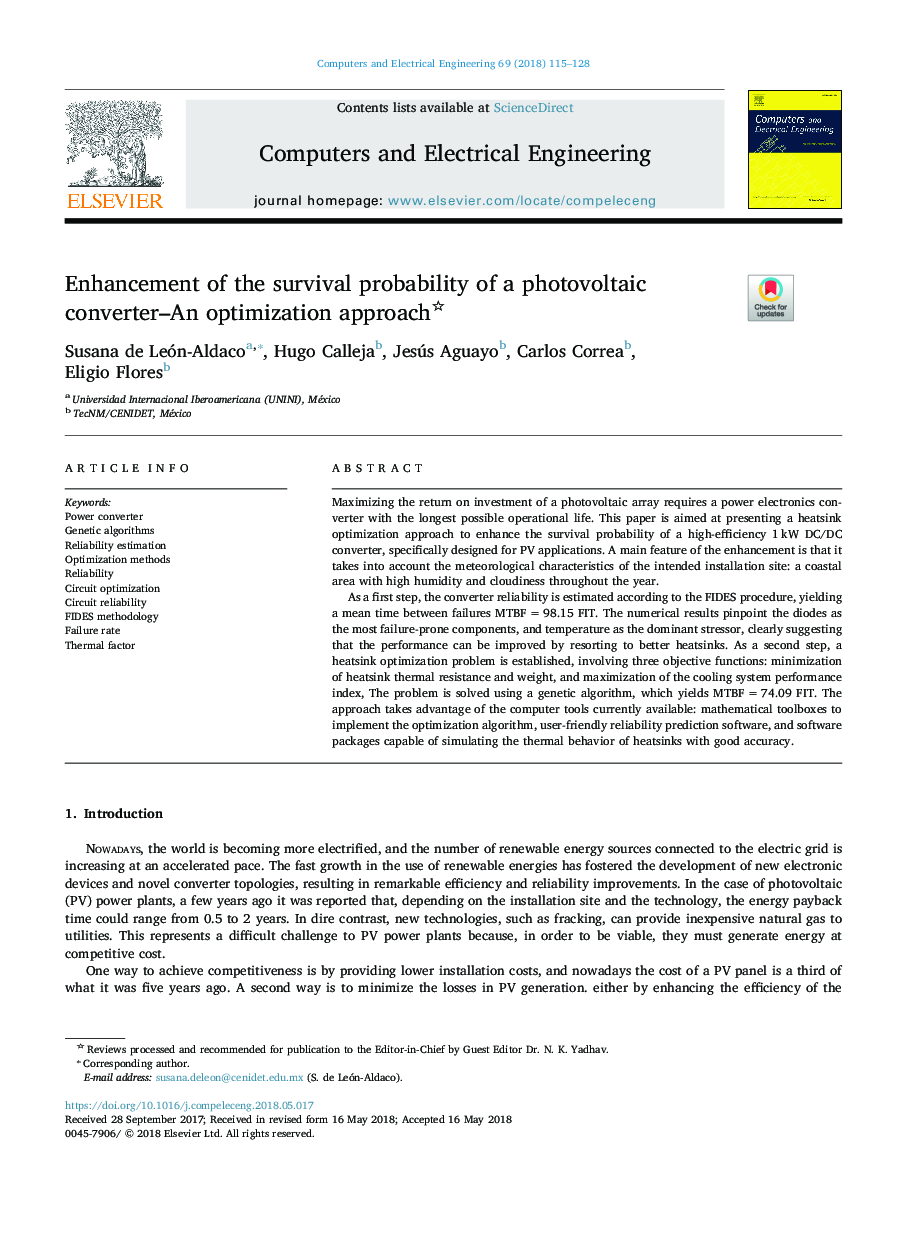| Article ID | Journal | Published Year | Pages | File Type |
|---|---|---|---|---|
| 6883281 | Computers & Electrical Engineering | 2018 | 14 Pages |
Abstract
As a first step, the converter reliability is estimated according to the FIDES procedure, yielding a mean time between failures MTBFâ¯=â¯98.15 FIT. The numerical results pinpoint the diodes as the most failure-prone components, and temperature as the dominant stressor, clearly suggesting that the performance can be improved by resorting to better heatsinks. As a second step, a heatsink optimization problem is established, involving three objective functions: minimization of heatsink thermal resistance and weight, and maximization of the cooling system performance index, The problem is solved using a genetic algorithm, which yields MTBFâ¯=â¯74.09 FIT. The approach takes advantage of the computer tools currently available: mathematical toolboxes to implement the optimization algorithm, user-friendly reliability prediction software, and software packages capable of simulating the thermal behavior of heatsinks with good accuracy.
Keywords
Related Topics
Physical Sciences and Engineering
Computer Science
Computer Networks and Communications
Authors
Susana de León-Aldaco, Hugo Calleja, Jesús Aguayo, Carlos Correa, Eligio Flores,
